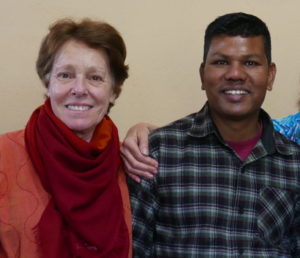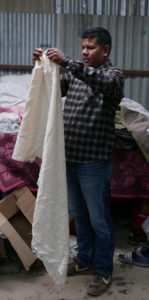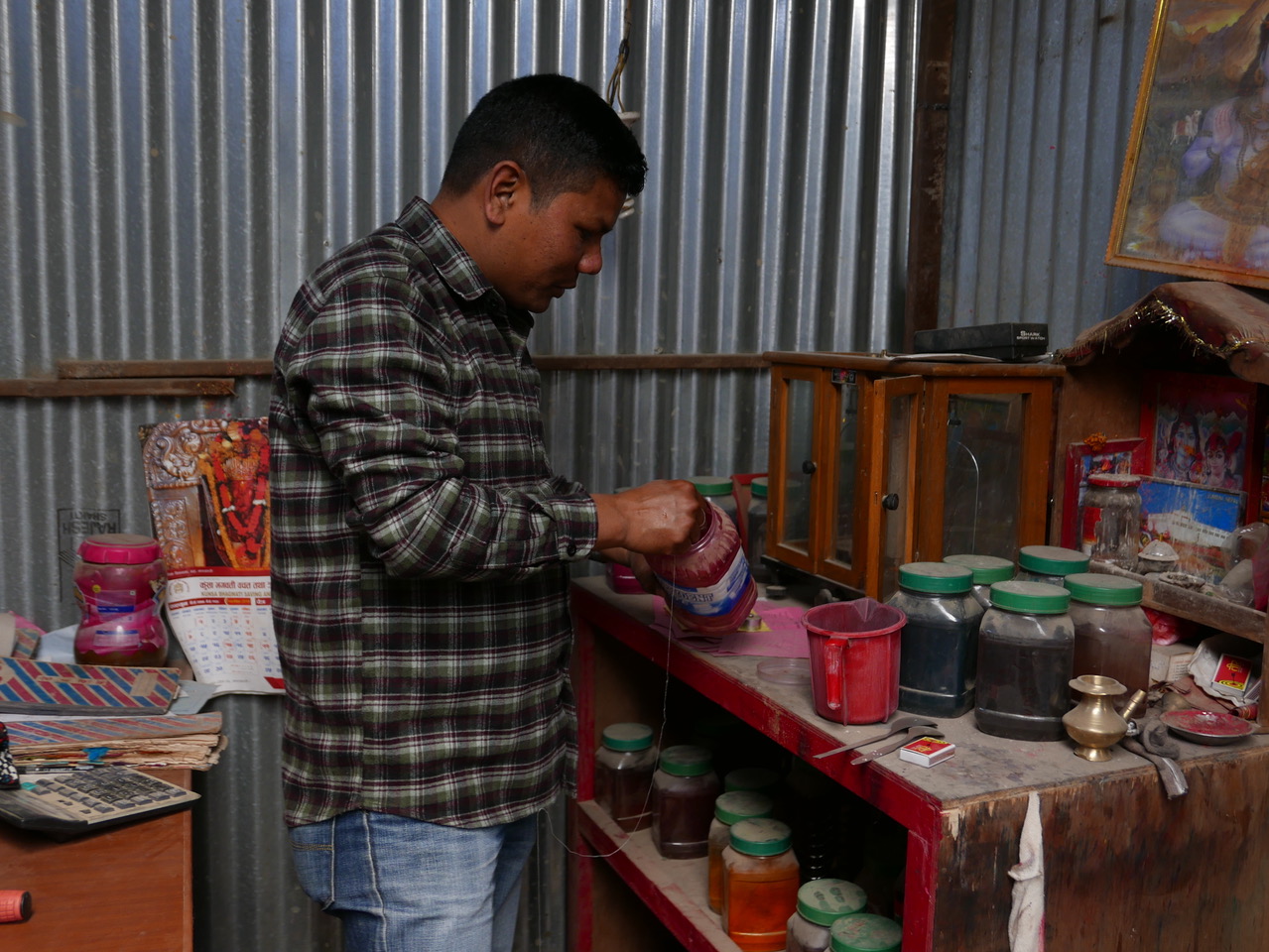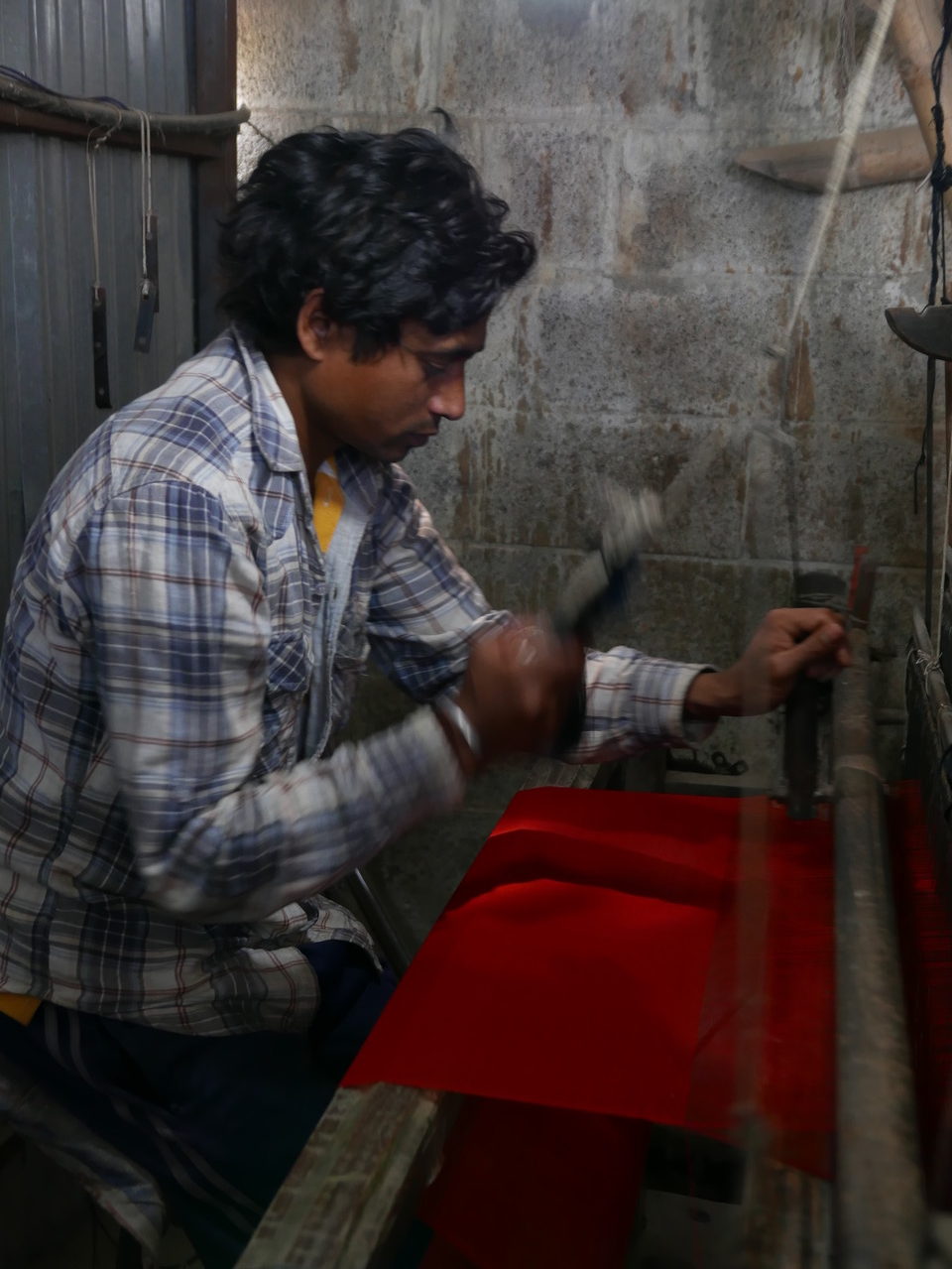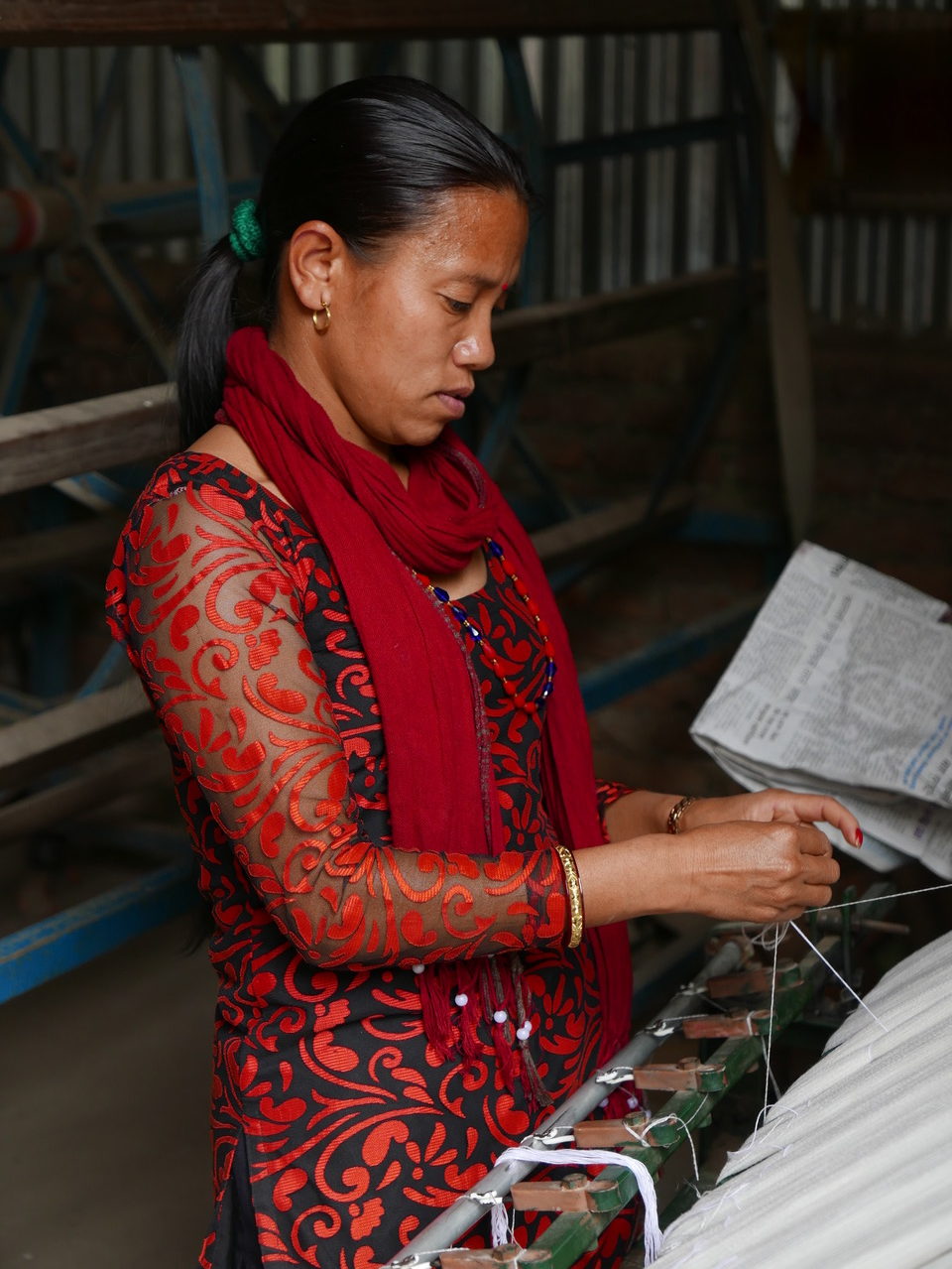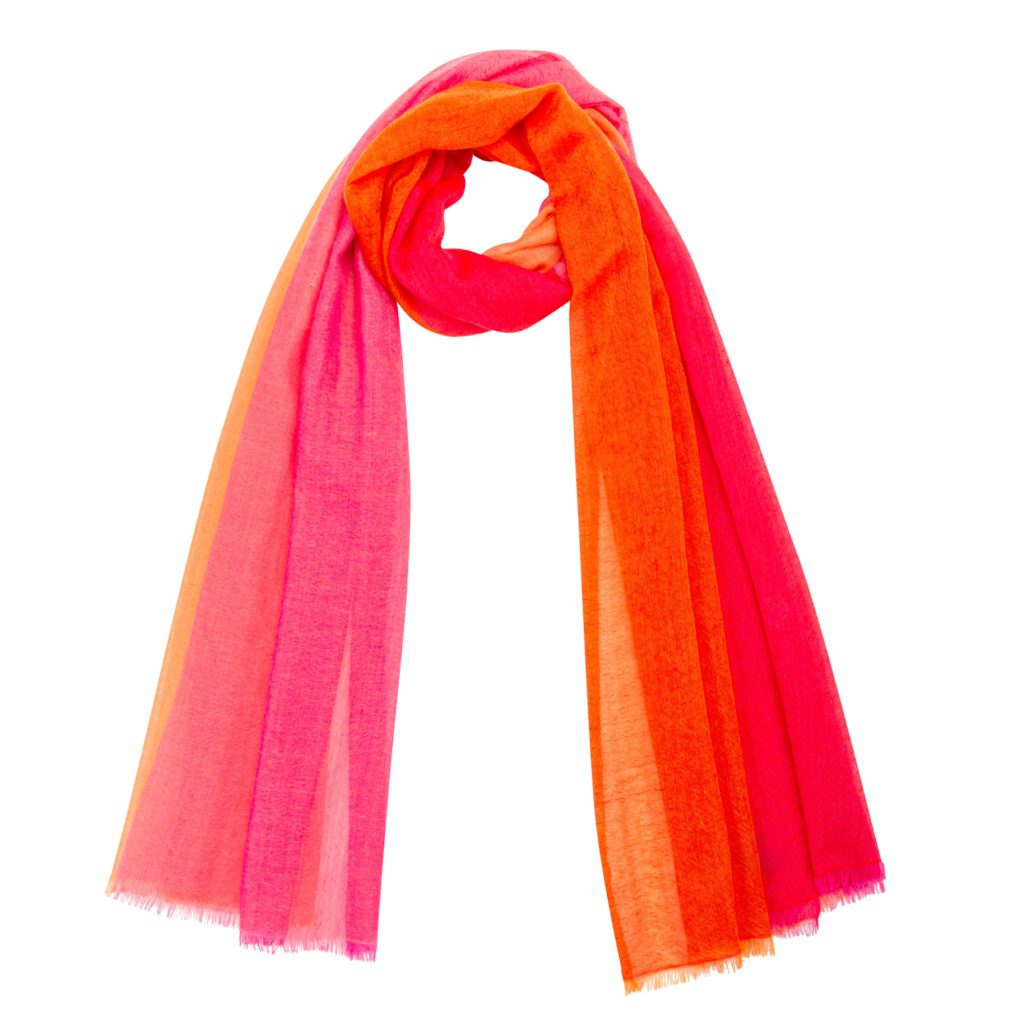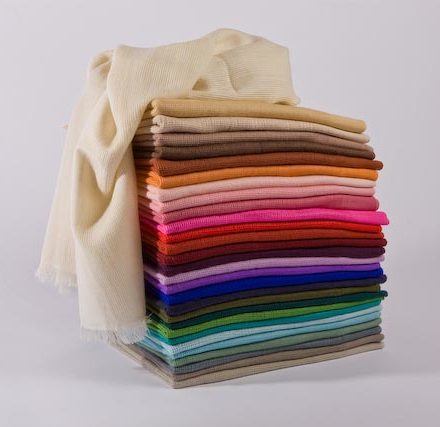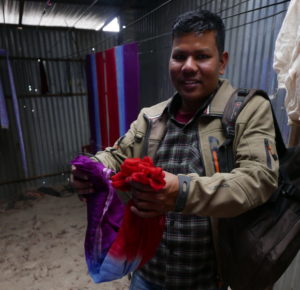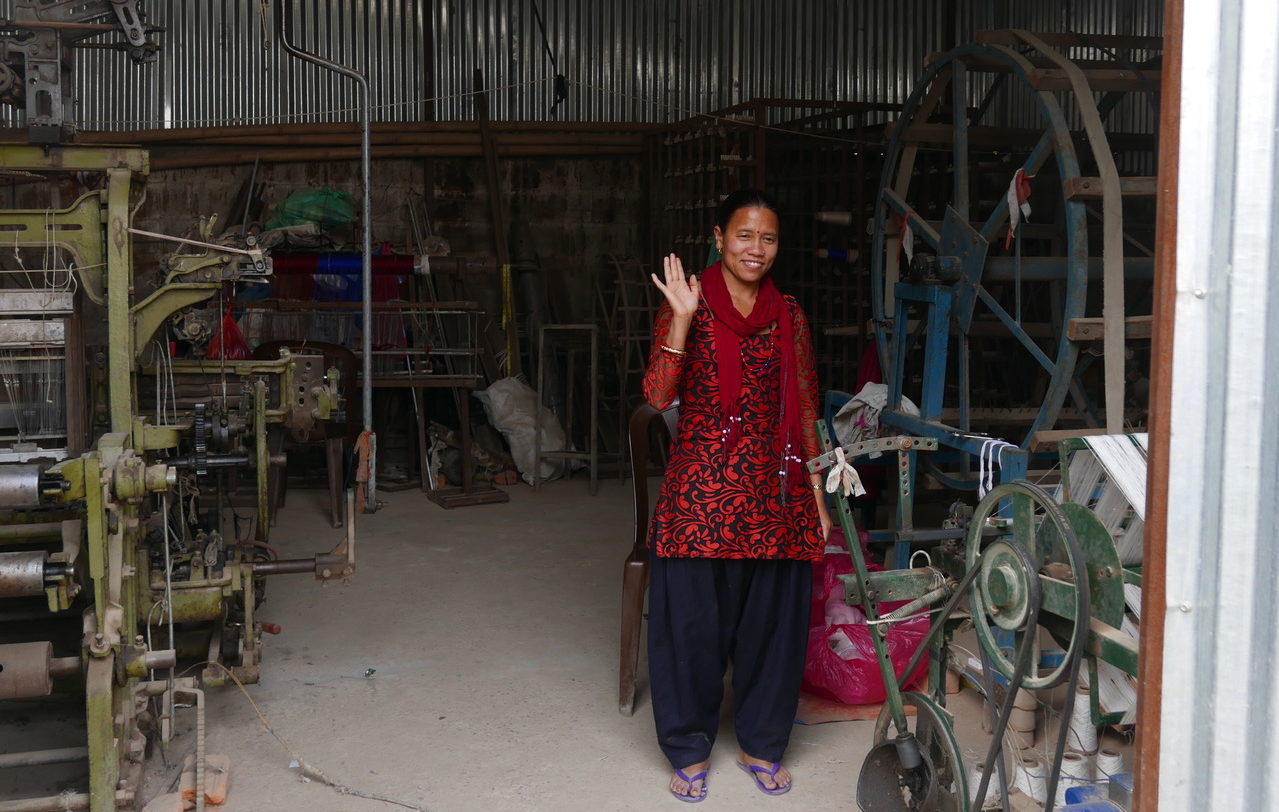Artisans at Work: Babu Ram
Zaanha’s story has many parts.
One essential component is the skilled master artisans with whom we proudly work. These hard-working small business owners in Nepal and India employ and support their local communities.
Meet Babu Ram. Babu Ram’s studio is responsible for our best-selling basketweaves, our four-colored rectangles, and more. This is Babu Ram’s story about how be came to start his own business.
ZH: What did you do before starting your own business?
Babu Ram: Before starting my own business, I worked for almost thirteen years in one of Nepal’s largest pashmina suppliers. I started at the bottom and eventually moved up to being the Sales and Export Manager.
ZH: How did you begin your business? Was it a difficult process?
B: I am originally from Eastern Part of Nepal. I came to Kathmandu to study. When I arrived, I got a job in a local store that sold pashmina products, and there I became fascinated with all aspects of production. I completed my Masters degree in English in 2010. In 2011, I started an EMBA (Executive Master of business Administration in Marketing), where I took business courses.
Before I started my business, I did a lot of research and collected a lot of pictures of cashmere products. I then sent those pictures to many of my international customers, in Belgium, France, Germany, and to Zaanha in the US. I received positive feedback and established my own Pashmina studio in 2011.
With my years of work in the field, I was already well-acquainted with the various processes such as weaving, coloring and dying. During my training for my Masters degree, my professors encouraged me to start my own business.
People think it is so easy to start a business, but it’s actually very difficult. Starting a business takes an investment of time as well as as money, and great courage to go off on one’s own. Before I started my business, I wrote 50 correspondents to different international customers who I knew, and received barely 15 positive responses. I am truly thankful to them who helped me in each and every step to establish and expand.
ZH: What’s an average day like for you at work?
BC: When I first started, I had to work almost 12 hours a day. Nowadays I continue to work 10 hours a day. Since I control all product production from my company, I need to check the quality and finishing for each.
ZH: You make basketweave scarves that Zaanha sells. Can you tell me a little about the process of creating them?
BC: For the basketweaves, we set up the loom using silk for the warp, then use the finest 100% cashmere for the weft. A basketweave stole is featherlight, weighing in at about 5.5 ounces. When the weaving process is completed, the scarves move on to the dying process
ZH: Where do you get the materials for the scarves?
BC: We use cashmere from inner Mongolia.
ZH: Is there anything else you’d like people to know about you or your business?
BC: Though cashmere is not my family business, my work experience in this industry has helped me to establish my own company. When I set up my company, the initial investment was one million Nepalese Rupees (about $9,000), with two hand looms. Now I have around ten million NP in investment and five looms.
One piece of advice I can offer to anyone trying to start their own business is remember to that your most important commodity is the service you offer your customers. Always focus on customer service.

